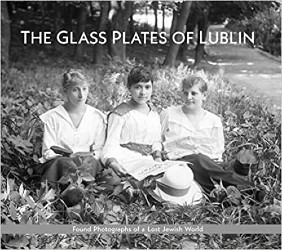In Outwitting History, Aaron Lansky, founder of the renowned National Yiddish Book Center, tells his personal story as a one-man rescuer of Yiddish books — and along the way provides an accessible, informative and deeply engaging account of the fate of Yiddish in America.
Lansky’s memoir fascinates as it recounts how his relatively simple quest for books, as a graduate student of Yiddish in Montreal in the late 1970’s, turned into a rescue mission of historic proportions. In the author’s own words, it is an “adventure story” involving capers with a truck (invariably in bad condition) and a friend or two, as they respond to late-night telephone calls about abandoned Yiddish books in basements or on the verge of being jettisoned into dumpsters. But the adventure aspect of the book (told with suspense and humor) is intertwined with pathos. As word went out about his interest in Yiddish books, Lansky’s road trips took him to apartments in decaying neighborhoods, where elderly Yiddish speakers waited to entrust him with their legacy. Before he could load up on books, however, he had to load up on kugel and tea, and listen for hours to the old folks’ stories. And what stories they were! After all, Yiddish culture in the U.S. had once encompassed an incredibly vibrant scene of newspapers, theaters, political and social organizations, and publishers of eagerly read literature. By the time Lansky arrived with his truck, the culture’s bloom had faded, and the book donors’ assimilated children had no interest in their parents’ treasured libraries. Lansky allows the reader to discover that his mission wasn’t just about picking up old peoples’ books: it was about receiving a cultural transmission. And he conveys the depth of this transmission through lucid tangents into the development of modern Yiddish literature, the socialist politics of the Jewish Labor Bund and much more. One comes away from this memoir with a sense of the panorama of history through which even the most common Yiddish book has passed.
Lansky, who won a MacArthur Award for his “simple” idea of rescuing Yiddish books, has performed another important deed with his warm, anecdotal memoir. He tells the story of the National Yiddish Book Center in a way that not only evokes laughter and tears (the emotions most associated with the popularization of Yiddish in America) but also draws the reader into an awareness of the cultural and intellectual riches of Yiddish. Lansky proves, in the words of the great scholar Max Weinreich, that Yiddish “has magic” and “will outwit history” — as long as there are people ready to create imaginative new links in a chain of cultural transmission.
Join a community of readers who are committed to Jewish stories
Sign up for JBC’s Nu Reads, a curated selection of Jewish books delivered straight to your door!




